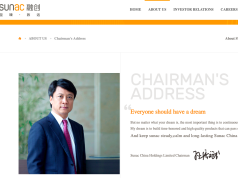UK Financial Conduct Authority to Collect £10,000 to £250,000 Economic Crime Levy from Medium & Large Anti-Money Laundering Regulated Businesses, Impacted Firms Include Financial Institutions, Credit Firms, Auditors, Accountants, Lawyers, Trust, Service Providers, Estate Agents, Dealers, Casinos, Auctions, Art Market, Crypto & Custodians
11th March 2023 | Hong Kong
The UK Financial Conduct Authority (FCA) will be collecting £10,000 to £250,000 for a new Economic Crime Levy from medium & large Anti-Money Laundering (AML) regulated businesses, with impacted firms such as financial institutions, credit firms, auditors, accountants, lawyers, trust, service providers, estate agents, dealers, casinos, auctions, art market, crypto and custodians. UK FCA: “The government will establish an Economic Crime (Anti-Money Laundering) Levy (‘the levy’) on entities that are regulated for anti-money laundering (AML) purposes. The levy will first be charged on entities that are regulated during the financial year from 1 April 2022 to 31 March 2023, and the amount payable will be determined by reference to their size based on their UK revenue from periods of account ending in that year. Amounts will be payable following the end of each financial year. Therefore, first payments will be made in the financial year from 1 April 2023 to 31 March 2024. The levy will be paid as a fixed fee based on the size band an AML-regulated entity falls into based on their UK revenue. All small entities will be exempt, whilst medium entities will pay £10,000; large entities £36,000; very large entities £250,000.” See below for more info.
“ UK Financial Conduct Authority to Collect £10,000 to £250,000 Economic Crime Levy from Medium & Large Anti-Money Laundering Regulated Businesses, Impacted Firms Include Financial Institutions, Credit Firms, Auditors, Accountants, Lawyers, Trust, Service Providers, Estate Agents, Dealers, Casinos, Auctions, Art Market, Crypto & Custodians “
UK Financial Conduct Authority to Collect £10,000 to £250,000 Economic Crime Levy from Medium & Large Anti-Money Laundering Regulated Businesses

FCA to collect Treasury’s economic crime levy (Anti-Money Laundering) from July 2023
9th March 2023 – The Government has introduced an economic crime levy (ECL) to fund the fight against economic crime. The levy will be collected for the Government by HM Revenue and Customs (HMRC), the FCA and the Gambling Commission.
The ECL will apply to AML regulated businesses including:
- credit institutions
- financial institutions
- auditors, insolvency practitioners, external accountants, and tax advisers
- independent legal professionals
- trust or company service providers
- estate and lettings agents
- high value dealers, casinos, auction platforms and art market participants
- rypto asset exchange providers and custodian wallet providers
We are responsible for collecting the levy from those firms that sit within our regulated population or are registered with us. Impacted firms (those who were subject to the money laundering regulations between 6 April 2022 and 5 April 2023) will see the new levy appear on invoices from July 2023. The levy will be paid annually and determined by a firm’s UK revenue. To ensure firms are charged the right amount, all impacted firms must submit their data via new Reg Data Report (FIN074) from 1 April. A failure to submit in time may result in a £250 administrative fee. Those firms registered as an Annex 1 financial institutions only will receive a letter to report their data.
Money laundering registration – Last updated: 21/02/2023
Find out about money laundering registration, including how to register, de-register and tell us about a change. Money Laundering, Terrorist Financing and Transfer of Funds (Information on the Payer) Regulations 2017 (the Regulations) give the FCA responsibility for supervising the anti-money laundering controls of businesses that offer certain services. If you offer these services, you will need to register with us as an Annex I financial institution under the Regulations. This applies to the following services:
- lending including, among others, consumer credit, credit agreements relating to immoveable property, factoring with or without recourse, and financing of commercial transactions (including forfeiting). Consumer credit lenders must be authorised by the FCA and do not need to separately register with us for supervision under the Regulations
- financial leasing
- providing payment services
- issuing and administering other means of payment
- offering guarantees and commitments
- trading for own account or for account customers in any of the following:
- money market instruments
- foreign exchange
- financial futures and options
- exchange and interest-rate instruments or
- transferable securities
- safe custody services
- money broking
- portfolio management advice
- safekeeping and administration of securities
- participation in securities issues and providing services related to such issues (this will include registrars)
- advice to undertakings on capital structure, industrial strategy and related questions and advice and services relating to mergers and the purchase of undertakings
How to register under the Regulations
Businesses that need to register can do so using our online system Connect.
De-registering under the Regulations
Once registered, if your business no longer carries out one of the activities above, please complete a de-registration form.
Telling us about changes under the Regulations
If your business changes its core details (for example, it begins to offer another service that is in the list above, or it changes its address), please complete the Notification to amend firms details for an Annex I financial Institution.
If your business is applying to add an individual after registration as an Annex I Financial Institution, please complete the MLR Individual form:
Special purpose vehicles and registering under the Money Laundering Regulations
Special purpose vehicles involved in lending do not need to register with us as Annex I financial institutions if only the legal or beneficial interest in loans are transferred to them. They will need to register where they act as the original lender.
Economic Crime (Anti-Money Laundering) Levy – 2021
Who is likely to be affected
Entities regulated for anti-money laundering (AML) purposes under the Money Laundering, Terrorist Financing and Transfer of Funds Regulation 2017 that are medium, large or very large in size based on their UK revenue. An entity is classified as:
- medium if its UK revenue for the relevant accounting period is more than £10.2 million but not more than £36 million
- large if its UK revenue for the relevant accounting period is more than £36 million but not more than £1 billion
- very large if its UK revenue for the relevant accounting period is more than £1 billion
The sectors that we expect will be impacted are:
- credit institutions
- financial institutions
- auditors, insolvency practitioners, external accountants and tax advisers
- independent legal professionals
- trust or company service providers
- estate agents and letting agents
- high value dealers, casinos, auction platforms and art market participants
- cryptoasset exchange providers and custodian wallet providers
General description of the measure
The government will establish an Economic Crime (Anti-Money Laundering) Levy (‘the levy’) on entities that are regulated for anti-money laundering (AML) purposes. The levy will first be charged on entities that are regulated during the financial year from 1 April 2022 to 31 March 2023, and the amount payable will be determined by reference to their size based on their UK revenue from periods of account ending in that year. Amounts will be payable following the end of each financial year. Therefore, first payments will be made in the financial year from 1 April 2023 to 31 March 2024.
The levy will be paid as a fixed fee based on the size band an AML-regulated entity falls into based on their UK revenue. There will be four size bands:
- small (under £10.2m UK revenue)
- medium (£10.2m – £36m)
- large (£36m – £1bn)
- very large (over £1bn)
All small entities will be exempt, whilst medium entities will pay £10,000; large entities £36,000; very large entities £250,000. A technical consultation on the draft legislation ran from 21 September to 15 October 2021 to receive views on the policy design and on the detail of the draft legislation, in particular the definition of UK revenue.
Policy objective
The Economic Crime (Anti-Money Laundering) Levy (‘the levy’) is part of the government’s wider objective, outlined in the 2019 Economic Crime Plan (ECP), to develop a long-term Sustainable Resourcing Model (SRM) to tackle economic crime. As one part of this SRM, and supported by ongoing government funding, the levy will aim to raise £100 million per year from the AML regulated sector to pay for government initiatives outlined in the ECP to help tackle money laundering.
The government believes it is fair and proportionate that as the sector most exposed to money laundering risk, the AML-regulated sector should be the principal contributor to the reform initiatives that will benefit them and help make the UK a safer place for them to do business.
Background to the measure
The levy was announced at Budget 2020. A policy consultation was then published on L-day in Summer 2020, running from 21 July to 14 October. The government’s response to the consultation was published alongside the draft legislation and an Explanatory Note on 21 September 2021. Following publication, a technical consultation on the draft legislation ran from 21 September to 15 October 2021.
Operative date
The levy will first be charged in the financial year running from 1 April 2022 to 31 March 2023 on any medium, large and very large entities regulated for anti-money laundering (AML) purposes at any point during that year.
The levy will first be paid by in-scope entities at the end of each financial year, meaning first payments will be due in the financial year 1 April 2023 to 31 March 2024.
Monitoring and evaluation
The government will undertake a review of the levy by the end of 2027. This would seek to take place after around three years of operation, and may consider matters such as whether the levy: is meeting its original policy objectives; should continue; should remain based on just the AML-regulated sector; and, is still being calculated and collected appropriately.
Sign Up / Register
Caproasia Users
- Manage $20 million to $3 billion of assets
- Invest $3 million to $300 million
- Advise institutions, billionaires, UHNWs & HNWs
Caproasia Platforms | 11,000 Investors & Advisors
- Caproasia.com
- Caproasia Access
- Caproasia Events
- The Financial Centre | Find Services
- Membership
- Family Office Circle
- Professional Investor Circle
- Investor Relations Network
Monthly Roundtable & Networking
Family Office Programs
The 2025 Investment Day
- March - Hong Kong
- March - Singapore
- July - Hong Kong
- July - Singapore
- Sept- Hong Kong
- Sept - Singapore
- Oct- Hong Kong
- Nov - Singapore
- Visit: The Investment Day | Register: Click here
Caproasia Summits
- The Institutional Investor Summit
- The Investment / Alternatives Summit
- The Private Wealth Summit
- The Family Office Summit
- The CEO & Entrepreneur Summit
- The Capital Markets Summit
- The ESG / Sustainable Investment Summit










































